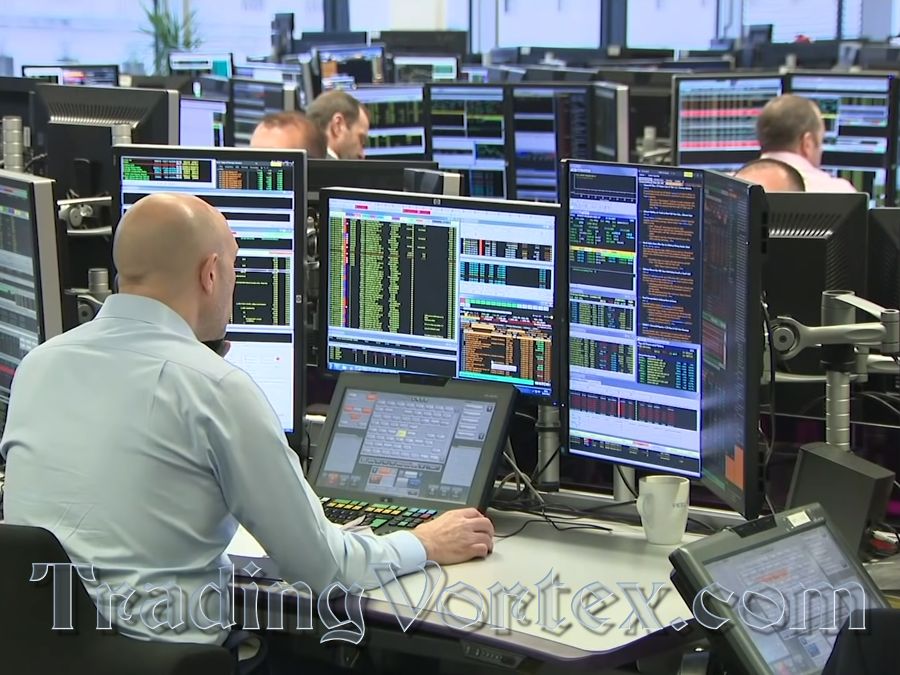Table Of Contents:
- Introduction – The Importance of Choosing the Right Forex Broker:
- Understanding Forex Brokers – Key Concepts and Terminology:
- Evaluating Broker Reliability and Trustworthiness:
- Assessing Trading Platforms and Tools:
- Understanding Broker Fees and Costs:
- Account Types and Minimum Deposits:
- Leverage and Margin – Balancing Risk and Reward:
- Trading Conditions and Execution Speed:
- Educational Resources and Support:
- Conclusion – Making an Informed Decision:
- FAQs – Choose the Right Broker for Successful Forex Trading:
Introduction – The Importance of Choosing the Right Forex Broker:
Why Selecting the Right Broker Matters for Forex Trading Success?
Imagine diving into the world of Forex trading without a reliable guide. It's like navigating a maze blindfolded. Choosing the right Forex broker is your first and most crucial step towards trading success. A good broker can be your trusted partner, providing the tools, resources, and support you need to thrive. On the flip side, a poor choice can lead to frustration, financial loss, and missed opportunities.
Think of it this way: Would you trust just anyone with your hard-earned money? Of course not! The same principle applies here. Your broker is the gatekeeper to the Forex market, and their reliability, transparency, and services can significantly impact your trading journey.
Overview of the Forex Market and Broker Roles:
The Forex market, or foreign exchange market, is the largest and most liquid financial market in the world. It's where currencies are traded, and its daily trading volume exceeds $6 trillion. This vast market operates 24 hours a day, five days a week, allowing traders from all over the globe to participate.
Now, let's talk about the role of a Forex broker. In simple terms, a broker acts as an intermediary between you and the interbank system, which is a network of banks trading currencies with each other. Brokers provide you with a trading platform to execute your trades, offer leverage to amplify your trading power, and supply various tools and resources to help you make informed decisions.
But not all brokers are created equal. Some might offer lower spreads, while others provide better customer service or more advanced trading tools. It's essential to find a broker that aligns with your trading style and goals. For instance, if you're a beginner, you might prioritize educational resources and a user-friendly platform. If you're an experienced trader, you might look for advanced charting tools and competitive spreads.
Personal Anecdote – My Journey to Finding the Right Broker:
Let me share a little story from my own trading journey. When I first started, I was overwhelmed by the sheer number of brokers out there. I remember signing up with a broker that promised the moon but delivered very little. The platform was clunky, customer service was non-existent, and I felt like I was trading in the dark. It was a frustrating experience, to say the least.
After doing more research and talking to fellow traders, I switched to a broker that was well-regulated, had excellent reviews, and offered a wealth of educational resources. The difference was night and day. Suddenly, I had access to real-time data, responsive customer support, and a community of traders to learn from. My trading improved, and I felt more confident in my decisions.
Conclusion – Setting the Stage for Success:
Choosing the right Forex broker is not just about finding a platform to trade on; it's about finding a partner who will support you on your trading journey. Take the time to research, compare, and test different brokers. Look for transparency, reliability, and the tools that match your trading needs. Remember, the right broker can make all the difference between a frustrating experience and a successful trading career.
In the next sections, we'll dive deeper into the specifics of what to look for in a broker, from regulatory compliance to trading platforms and fees. Stay tuned, and let's embark on this journey to successful Forex trading together!
Understanding Forex Brokers – Key Concepts and Terminology:
What is a Forex Broker?
Alright, let's start with the basics. A Forex broker is essentially your gateway to the Forex market. Think of them as the middleman who facilitates your trades. They provide you with a trading platform, access to market data, and the ability to buy and sell currencies. Without a broker, you'd be like a sailor without a ship – stranded and unable to navigate the vast ocean of Forex trading.
Forex brokers earn their keep by charging fees, which can come in the form of spreads, commissions, or other charges. Their job is to ensure you have a smooth trading experience, offering tools and resources to help you make informed decisions. But remember, not all brokers are created equal, and choosing the right one can make a world of difference in your trading journey.
Types of Forex Brokers – Market Makers vs. ECN Brokers:
Now, let's dive into the different types of Forex brokers. This is where things get a bit more interesting. There are two main types: Market Makers and ECN (Electronic Communication Network) brokers.
- Market Makers: These brokers create a market for you to trade in. They set the bid and ask prices and take the opposite side of your trade. Essentially, they "make" the market. While this can mean more liquidity and potentially tighter spreads, it also means there's a potential conflict of interest. If you win, they lose, and vice versa. So, it's crucial to choose a reputable Market Maker to avoid any shady practices.
- ECN Brokers: On the other hand, ECN brokers connect you directly with other market participants, such as banks, hedge funds, and other traders. They don't take the opposite side of your trade. Instead, they match your orders with those of other participants. This often results in lower spreads and more transparency. However, ECN brokers typically charge a commission on each trade, which can add up over time.
Choosing between a Market Maker and an ECN broker depends on your trading style and preferences. If you value transparency and lower spreads, an ECN broker might be the way to go. If you prefer the simplicity and potentially tighter spreads of a Market Maker, then that could be your best bet.
Key Forex Trading Terms Every Trader Should Know:
Before you dive headfirst into trading, it's essential to familiarize yourself with some key Forex trading terms. Here are a few you should know:
- Spread: This is the difference between the bid (buy) and ask (sell) price of a currency pair. It's essentially the cost of making a trade. Brokers often make their money through the spread.
- Pip: A pip is the smallest price move that a given exchange rate can make. In most currency pairs, it's the fourth decimal place (0.0001). Understanding pips is crucial for calculating profits and losses.
- Leverage: Leverage allows you to control a large position with a relatively small amount of capital. For example, with 100:1 leverage, you can control $100,000 with just $1,000. While leverage can amplify your profits, it can also magnify your losses, so use it wisely.
- Margin: Margin is the amount of money required to open a leveraged position. It's essentially a good faith deposit that ensures you can cover potential losses.
- Stop-Loss Order: A stop-loss order is a tool used to limit potential losses. It automatically closes a trade when the price reaches a specified level. It's a crucial risk management tool that every trader should use.
- Take-Profit Order: This is the opposite of a stop-loss order. It automatically closes a trade when the price reaches a specified profit level. It's a way to lock in profits without having to monitor the market constantly.
Personal Anecdote – My First Encounter with Forex Jargon:
When I first started trading, I remember feeling overwhelmed by all the jargon. Pips, spreads, leverage – it was like learning a new language. I recall one of my early trades where I didn't fully understand the concept of leverage. I ended up over-leveraging my position and faced a significant loss. It was a tough lesson, but it taught me the importance of understanding these key terms before diving into the market.
Conclusion – Building a Strong Foundation:
Understanding the key concepts and terminology of Forex trading is like building a strong foundation for a house. Without it, everything else can crumble. Take the time to familiarize yourself with these terms and concepts. It will not only boost your confidence but also help you make more informed trading decisions.
In the next sections, we'll explore how to evaluate broker reliability, assess trading platforms, and understand broker fees. Stay tuned, and let's continue this journey to successful Forex trading together!
Evaluating Broker Reliability and Trustworthiness:
Regulatory Compliance – Ensuring Your Broker is Regulated:
When it comes to choosing a Forex broker, regulatory compliance is non-negotiable. Think of regulation as a safety net that protects you from falling into the hands of unscrupulous brokers. Regulated brokers are required to adhere to strict standards and practices, ensuring a fair and transparent trading environment.
A quick tip: Always cross-check the broker's regulatory claims with the official website of the regulatory body. This extra step can save you from potential scams. Remember, a regulated broker is your first line of defense against fraud and malpractice.
Broker Reputation – Researching Broker Reviews and Ratings:
In the digital age, a broker's reputation is just a few clicks away. Online reviews and ratings can provide valuable insights into a broker's reliability and trustworthiness. But be cautious – while reviews can be helpful, they can also be manipulated. Look for reviews on reputable financial websites and forums where experienced traders share their honest opinions.
Pay attention to recurring themes in the reviews. Are there consistent complaints about withdrawal issues or poor customer service? Or do traders praise the broker for their transparency and efficient platform? These patterns can give you a clearer picture of what to expect.
Personal anecdote time! I once ignored negative reviews about a broker's withdrawal process, thinking they were just isolated incidents. Big mistake. When it came time to withdraw my profits, I faced endless delays and unresponsive customer service. Lesson learned: Trust the collective wisdom of the trading community.
Customer Service – The Importance of Responsive Support:
Imagine you're in the middle of a crucial trade, and suddenly, you encounter a technical issue. Panic sets in, and you need help – fast. This is where responsive customer service becomes invaluable. A broker with excellent customer support can be a lifesaver in such situations.
Test the broker's customer service before committing. Reach out with a few questions and see how quickly and effectively they respond. Do they offer multiple channels of communication, such as live chat, email, and phone support? Are their representatives knowledgeable and helpful?
Good customer service is not just about resolving issues; it's about building trust and ensuring you feel supported throughout your trading journey. A broker that values its clients will invest in a robust customer support system.
Conclusion – Building Trust with Your Broker:
Evaluating a broker's reliability and trustworthiness is like building a foundation for your trading career. Regulatory compliance ensures you're protected by law, a solid reputation gives you peace of mind, and responsive customer service provides the support you need when things go awry.
Take your time to research and choose a broker that ticks all these boxes. Remember, a trustworthy broker is not just a service provider; they're your partner in navigating the complex world of Forex trading.
In the next sections, we'll delve into assessing trading platforms, understanding broker fees, and more. Stay with us as we continue this journey to successful Forex trading!
Assessing Trading Platforms and Tools:
User-Friendly Trading Platforms – Features to Look For:
When it comes to Forex trading, your platform is your command center. It's where you'll spend most of your time analyzing markets, executing trades, and managing your portfolio. So, finding a user-friendly trading platform is crucial. But what exactly should you look for?
First and foremost, intuitive design is key. You don't want to waste time figuring out how to place a trade or access a chart. Look for platforms with a clean, organized layout where everything is easy to find. Platforms like MetaTrader 4 (MT4) and MetaTrader 5 (MT5) are popular for their user-friendly interfaces and robust features.
Next, consider the customization options. A good platform should allow you to tailor the layout to your preferences. Whether it's adjusting chart colors, setting up custom indicators, or arranging windows to suit your workflow, customization can make your trading experience much smoother.
Another essential feature is reliable execution. You need a platform that can execute trades quickly and accurately, especially in fast-moving markets. Delays or slippage can cost you money, so test the platform's performance during different market conditions.
Lastly, don't overlook the importance of security. Ensure the platform uses encryption and other security measures to protect your data and funds. After all, peace of mind is priceless when it comes to trading.
Essential Trading Tools – Charts, Indicators, and Analysis Software:
Now, let's talk about the tools that will help you make informed trading decisions. High-quality charts and indicators are the bread and butter of any trading platform.
- Charts: Look for platforms that offer a variety of chart types (line, bar, candlestick) and timeframes (from minutes to months). The ability to zoom in and out, add trend lines, and annotate charts can be incredibly useful for technical analysis.
- Indicators: Indicators are mathematical calculations based on price, volume, or open interest that traders use to predict future price movements. Popular indicators include Moving Averages, Relative Strength Index (RSI), and Bollinger Bands. A good platform should offer a wide range of built-in indicators and the ability to add custom ones.
- Analysis Software: Beyond charts and indicators, some platforms offer advanced analysis tools like automated trading systems, backtesting capabilities, and economic calendars. These tools can help you develop and test trading strategies, stay informed about market-moving events, and automate your trades.
Mobile Trading – The Benefits of Trading on the Go:
In today's fast-paced world, the ability to trade on the go is a game-changer. Mobile trading apps allow you to monitor the markets, execute trades, and manage your account from your smartphone or tablet.
The best mobile trading apps offer a seamless experience, mirroring the functionality of their desktop counterparts. Look for apps that provide real-time quotes, advanced charting tools, and secure login options. Push notifications for price alerts and news updates can also keep you informed and ready to act, no matter where you are.
Personal anecdote time! I remember a time when I was traveling and a significant market event occurred. Thanks to my mobile trading app, I was able to quickly assess the situation and make a trade that turned out to be quite profitable. Without the app, I would have missed the opportunity entirely.
Conclusion – Equipping Yourself for Success:
Choosing the right trading platform and tools is like equipping yourself with the best gear for an adventure. The right platform can enhance your trading experience, provide you with valuable insights, and help you execute trades efficiently. Take the time to explore different platforms, test their features, and find the one that best suits your trading style and needs.
In the next sections, we'll delve into understanding broker fees, account types, and more. Stay with us as we continue this journey to successful Forex trading together!
Understanding Broker Fees and Costs:
Spread, Commission, and Swap Fees: What You Need to Know?
When it comes to Forex trading, understanding the various fees and costs associated with your broker is crucial. These fees can significantly impact your profitability, so let's break them down in a way that's easy to digest.
- Spread: The spread is the difference between the bid (buy) and ask (sell) price of a currency pair. It's essentially the cost of making a trade. For example, if the EUR/USD pair has a bid price of 1.1200 and an ask price of 1.1202, the spread is 2 pips. Brokers often make their money through the spread, so it's important to compare spreads across different brokers. Lower spreads can save you money, especially if you're a high-frequency trader.
- Commission: Some brokers charge a commission on each trade, in addition to the spread. This is more common with ECN brokers, who offer tighter spreads but charge a commission per trade. For instance, a broker might charge $5 per lot traded. While this might seem small, it can add up over time, especially if you're trading large volumes.
- Swap Fees: Also known as rollover fees, swap fees are charged when you hold a position overnight. These fees are based on the interest rate differential between the two currencies in the pair you're trading. If you're holding a long position in a currency with a higher interest rate compared to the currency you're shorting, you might earn a small interest payment. Conversely, if the interest rate is lower, you'll pay a fee. Understanding swap fees is essential for traders who hold positions for more than a day.
Comparing Broker Fees – Finding the Most Cost-Effective Option:
Now that we've covered the basics, let's talk about how to compare broker fees to find the most cost-effective option. This process involves a bit of research and some number crunching, but it's well worth the effort.
Start by listing the brokers you're considering and their respective fees. Look at the spreads, commissions, and swap fees for the currency pairs you plan to trade. Some brokers might offer lower spreads but higher commissions, while others might have no commissions but wider spreads. Calculate the total cost of trading with each broker based on your trading style and frequency.
Personal anecdote time! I remember when I was new to trading, I chose a broker with seemingly low spreads. However, I didn't account for the high commissions they charged per trade. After a few months, I realized I was paying more in fees than I had anticipated. I switched to a broker with slightly higher spreads but no commissions, and my overall trading costs decreased significantly.
Hidden Costs – Avoiding Unexpected Charges:
Hidden costs can be the silent killers of your trading profits. These are fees that aren't always obvious at first glance but can add up over time. Here are a few to watch out for:
- Inactivity Fees: Some brokers charge a fee if your account is inactive for a certain period. This can be a nasty surprise if you take a break from trading. Always check the broker's policy on inactivity fees.
- Withdrawal Fees: While many brokers offer free deposits, they might charge a fee for withdrawals. This fee can vary depending on the withdrawal method and the amount. Make sure you understand the withdrawal fees before choosing a broker.
- Currency Conversion Fees: If you're trading in a currency different from your account's base currency, you might incur currency conversion fees. These fees can eat into your profits, especially if you're frequently converting currencies.
- Platform Fees: Some brokers charge for access to advanced trading platforms or additional tools. While these tools can be valuable, it's important to weigh the cost against the benefits.
Conclusion – Being Fee-Savvy for Better Profits:
Understanding broker fees and costs is essential for maximizing your trading profits. By being aware of spreads, commissions, swap fees, and hidden costs, you can make more informed decisions and choose a broker that offers the best value for your trading style.
Take the time to compare different brokers, calculate the total cost of trading, and watch out for hidden fees. Remember, every dollar saved on fees is a dollar added to your profits.
In the next sections, we'll explore account types, leverage, and more. Stay with us as we continue this journey to successful Forex trading together!
Account Types and Minimum Deposits:
Different Account Types – Standard, Mini, and Micro Accounts:
When it comes to Forex trading, one size definitely does not fit all. Brokers offer various account types to cater to different trading styles, experience levels, and financial capacities. Let's break down the most common types: Standard, Mini, and Micro accounts.
- Standard Accounts: These are the most common type of trading accounts. They typically require a higher minimum deposit, often ranging from $1,000 to $10,000. Standard accounts offer full access to all trading features and tools, and they usually come with lower spreads compared to smaller accounts. This type of account is ideal for experienced traders who have a substantial amount of capital to invest and are looking for the best trading conditions.
- Mini Accounts: Mini accounts are a great option for those who are new to Forex trading or prefer to trade smaller amounts. The minimum deposit for a mini account is usually lower, often between $100 and $1,000. These accounts allow you to trade mini lots, which are one-tenth the size of a standard lot. This means you can control your risk more effectively while still gaining valuable trading experience.
- Micro Accounts: If you're just dipping your toes into the Forex market, a micro account might be the perfect starting point. These accounts require very low minimum deposits, sometimes as little as $10. Micro accounts allow you to trade micro lots, which are one-tenth the size of a mini lot. This makes them an excellent choice for beginners who want to practice trading with minimal financial risk.
Minimum Deposit Requirements – Finding a Broker That Fits Your Budget:
One of the first things you'll notice when comparing brokers is the minimum deposit requirement. This is the amount of money you need to deposit to open an account and start trading. Minimum deposit requirements can vary widely, from as low as $10 to several thousand dollars.
When choosing a broker, it's important to find one that fits your budget. If you're a beginner, you might want to start with a broker that offers micro or mini accounts with low minimum deposits. This allows you to get a feel for trading without risking a large amount of money. As you gain experience and confidence, you can consider upgrading to a standard account with a higher minimum deposit.
Personal anecdote time! When I first started trading, I was hesitant to invest a large sum of money. I found a broker that offered a micro account with a $50 minimum deposit. This allowed me to learn the ropes and develop my trading strategy without the pressure of risking a significant amount of capital. Over time, as my skills improved, I gradually increased my deposits and eventually transitioned to a standard account.
Demo Accounts – Practicing Without Risk:
Before you dive into live trading, it's a good idea to practice with a demo account. A demo account allows you to trade with virtual money, giving you a risk-free environment to test your strategies and get comfortable with the trading platform.
Most brokers offer demo accounts that simulate real market conditions. This means you can practice placing trades, using different tools and indicators, and managing your risk without any financial consequences. Demo accounts are an invaluable resource for both beginners and experienced traders looking to refine their skills.
Using a demo account can also help you evaluate a broker's platform and services. You can see firsthand how user-friendly the platform is, how quickly trades are executed, and what kind of support is available. This can be a crucial step in choosing the right broker for your needs.
Conclusion – Starting Your Trading Journey on the Right Foot:
Choosing the right account type and understanding minimum deposit requirements are essential steps in your Forex trading journey. Whether you're a beginner looking to start small with a micro account or an experienced trader ready to dive into a standard account, there's an option out there for you.
Take advantage of demo accounts to practice without risk and get a feel for the trading platform. Remember, the goal is to find a broker and account type that align with your trading style, experience level, and financial capacity.
In the next sections, we'll explore leverage and margin, trading conditions, and more. Stay with us as we continue this journey to successful Forex trading together!
Leverage and Margin – Balancing Risk and Reward:
Understanding Leverage: How It Works and Its Risks?
Leverage is like a double-edged sword in the world of Forex trading. It can amplify your gains, but it can also magnify your losses. Essentially, leverage allows you to control a larger position in the market with a relatively small amount of capital. For example, with a leverage ratio of 1:100, you can control a $100,000 position with just $1,000 in your account.
The allure of leverage is undeniable. It offers the potential for significant profits even with modest market movements. However, it's crucial to understand that leverage also increases the level of risk. If the market moves against your position, your losses are multiplied by the leverage ratio. This means that while you can make substantial gains, you can also incur significant losses, potentially exceeding your initial investment.
Personal anecdote time! I remember my early days of trading when I was enticed by the high leverage offered by my broker. I opened a position with 1:200 leverage, thinking I was on the fast track to riches. Unfortunately, the market turned against me, and I quickly realized how leverage can work both ways. It was a tough lesson, but it taught me the importance of understanding and respecting leverage.
Margin Requirements: What You Need to Know?
Margin is the amount of money required to open and maintain a leveraged position. Think of it as a good faith deposit that ensures you can cover potential losses. When you open a leveraged trade, a portion of your account balance is set aside as margin. This margin acts as collateral for the broker, ensuring they can close your position if it starts to incur losses and you don't have enough funds to cover them.
Margin requirements are usually expressed as a percentage of the total position size. For example, if the margin requirement is 1%, you need to have at least 1% of the total position value in your account as margin. If your account balance falls below this level, your broker may issue a margin call, requesting additional funds to restore the margin level. Failure to meet a margin call can result in your position being closed, potentially leading to significant losses.
Understanding margin requirements is crucial for managing your risk. Always ensure you have enough funds in your account to cover the margin and be prepared for potential margin calls. This will help you avoid unexpected liquidations and keep your trading account healthy.
Managing Risk – Strategies for Safe Leverage Use:
Effective risk management is the cornerstone of successful trading, especially when using leverage. Here are some strategies to help you use leverage safely and effectively:
- Know Your Risk Tolerance: Before you start trading with leverage, assess your risk tolerance. How much are you willing to lose? Can you afford to lose the entire amount you're trading with? These questions will help you determine the appropriate level of leverage for your trading style and financial situation.
- Set Stop-Loss Orders: A stop-loss order is a pre-determined level at which your position will be automatically closed to limit potential losses. Setting stop-loss orders can help you manage risk by ensuring you don't lose more than you can afford.
- Use Leverage Judiciously: Don't be tempted to use the maximum leverage available. Start with lower leverage ratios and gradually increase them as you gain experience and confidence. This approach will help you manage risk more effectively.
- Diversify Your Portfolio: Diversification can help spread risk across different assets and reduce the impact of a single losing trade. By diversifying your portfolio, you can mitigate the risks associated with leverage.
- Monitor Your Positions: Keep a close eye on your leveraged positions and be ready to act if the market moves against you. Regularly review your trades and adjust your strategy as needed to stay on top of market conditions.
Conclusion – Balancing Risk and Reward:
Leverage and margin are powerful tools in Forex trading, offering the potential for significant profits but also carrying substantial risks. By understanding how leverage works, knowing the margin requirements, and implementing effective risk management strategies, you can balance the risk and reward to enhance your trading success.
Remember, the key to successful trading is not just about making profits but also about managing risks. Stay informed, trade wisely, and always be prepared for the unexpected.
In the next sections, we'll explore trading conditions, broker reliability, and more. Stay with us as we continue this journey to successful Forex trading together!
Trading Conditions and Execution Speed:
Order Execution – Ensuring Fast and Reliable Trades:
In the fast-paced world of Forex trading, execution speed can make or break your trading success. Imagine placing a trade and watching the market move in your favor, only to find out that your order was executed too late, missing the optimal price. Frustrating, right? That's why ensuring fast and reliable order execution is crucial.
To ensure fast and reliable trades, look for brokers that use advanced technology and infrastructure. For instance, brokers with servers located close to major financial hubs can offer lower latency and faster execution times. Additionally, brokers that use Straight-Through Processing (STP) or Electronic Communication Network (ECN) models tend to provide quicker and more transparent execution compared to market makers.
Trading Conditions – Slippage, Requotes, and Order Types:
Trading conditions encompass various factors that can affect your trading experience, including slippage, requotes, and the types of orders available.
- Slippage: Slippage occurs when an order is executed at a different price than expected. This can happen during periods of high market volatility or when there is low liquidity. While some slippage is inevitable, choosing a broker with fast execution speeds and robust infrastructure can help minimize its impact.
- Requotes: Requotes happen when a broker is unable to execute an order at the requested price and offers a new price instead. This can be frustrating, especially in fast-moving markets. Brokers that offer no-requote policies or use ECN/STP models are generally better at avoiding requotes.
- Order Types: The types of orders available can also impact your trading strategy. Common order types include market orders, limit orders, stop-loss orders, and take-profit orders. Each type serves a different purpose and can help you manage your trades more effectively. For example, stop-loss orders can help you limit potential losses, while take-profit orders can lock in profits when the market reaches a certain level.
Personal anecdote time! I once placed a market order during a major news event, expecting a quick execution. However, due to high volatility, I experienced significant slippage, and my order was filled at a much worse price than anticipated. It was a harsh reminder of the importance of understanding trading conditions and choosing a broker that can handle volatile markets efficiently.
Liquidity Providers – The Role They Play in Trade Execution:
Liquidity providers play a crucial role in the Forex market by ensuring there is enough liquidity for trades to be executed smoothly. They are typically large financial institutions, such as banks and hedge funds, that provide the necessary capital to facilitate trades.
When you place a trade, your broker may route your order to a liquidity provider who matches it with an opposing order. This process helps ensure that your trade is executed quickly and at the best possible price. Brokers that work with multiple liquidity providers can offer better pricing and execution quality, as they have access to a larger pool of liquidity.
It's important to choose a broker that partners with reputable liquidity providers. This can enhance your trading experience by reducing the likelihood of slippage and requotes, especially during periods of high market activity.
Conclusion – Optimizing Your Trading Experience:
Understanding trading conditions and execution speed is essential for optimizing your Forex trading experience. By choosing a broker with fast and reliable order execution, favorable trading conditions, and strong relationships with liquidity providers, you can enhance your chances of trading success.
Remember, the right broker can make a significant difference in your trading journey. Take the time to research and compare different brokers, paying close attention to their execution speeds, trading conditions, and liquidity partnerships.
In the next sections, we'll explore educational resources, support, and more. Stay with us as we continue this journey to successful Forex trading together!
Educational Resources and Support:
Broker-Provided Educational Materials – Courses, Webinars, and Tutorials:
When diving into the world of Forex trading, having access to quality educational resources can make a significant difference. Many brokers understand this and offer a variety of educational materials to help traders at all levels.
- Courses: Comprehensive courses can provide a structured learning path, covering everything from the basics of Forex trading to advanced strategies. These courses often include video lessons, quizzes, and practical exercises. For example, brokers like Interactive Brokers and AvaTrade offer extensive online courses that cater to both beginners and seasoned traders.
- Webinars: Webinars are a fantastic way to learn from experts in real-time. They cover a wide range of topics, from technical analysis to risk management, and often include Q&A sessions where you can get your specific questions answered. Many brokers host regular webinars, featuring industry professionals who share their insights and strategies. Interactive Brokers, for instance, offers a robust schedule of webinars on various trading topics.
- Tutorials: Step-by-step tutorials can be incredibly helpful, especially when you're just starting out. These tutorials often include detailed guides on how to use the trading platform, set up charts, and execute trades. They can be in the form of written articles, videos, or interactive modules. Brokers like AvaTrade provide a wealth of tutorials that can help you get up to speed quickly.
Personal anecdote time! I remember attending my first trading webinar hosted by a well-known broker. The presenter broke down complex concepts into simple, digestible pieces, and I walked away with a much clearer understanding of how to analyze market trends. It was a game-changer for my trading journey.
Community Support – Forums, Groups, and Mentorship Programs:
Trading can sometimes feel like a solitary endeavor, but it doesn't have to be. Engaging with a community of like-minded traders can provide invaluable support and insights.
- Forums: Online forums are a great place to connect with other traders, share experiences, and ask questions. Platforms like Forex Factory and BabyPips have active communities where traders discuss strategies, market news, and trading psychology. These forums can be a goldmine of information and a great way to learn from others' experiences.
- Groups: Joining trading groups on social media platforms like Facebook, LinkedIn, or Telegram can also be beneficial. These groups often have members ranging from beginners to experts, and they regularly share tips, analysis, and market updates. Being part of a group can help you stay motivated and keep up with the latest trends.
- Mentorship Programs: Having a mentor can accelerate your learning curve. Many brokers and trading communities offer mentorship programs where experienced traders guide you through the intricacies of Forex trading. A mentor can provide personalized advice, help you develop a trading plan, and keep you accountable. Programs like these can be incredibly valuable, especially when you're navigating the complexities of the Forex market.
Continuous Learning – Staying Updated with Market Trends:
The Forex market is dynamic and constantly evolving, so continuous learning is essential for long-term success. Staying updated with market trends and developments can help you make informed trading decisions and adapt to changing conditions.
- Market News and Analysis: Regularly reading market news and analysis can keep you informed about economic events, geopolitical developments, and other factors that influence currency prices. Many brokers provide daily or weekly market updates, as well as in-depth analysis reports. Websites like ForexLive and Investing.com are also excellent sources for up-to-date market information.
- Economic Calendars: An economic calendar is a crucial tool for any Forex trader. It lists upcoming economic events and data releases that can impact the markets. By keeping an eye on the economic calendar, you can anticipate market movements and plan your trades accordingly. Most brokers offer economic calendars on their platforms, and there are also standalone options available online.
- Trading Journals: Keeping a trading journal is a great way to track your progress and learn from your experiences. By recording your trades, strategies, and outcomes, you can identify patterns, strengths, and areas for improvement. Reflecting on your journal entries can provide valuable insights and help you refine your trading approach over time.
Conclusion – Empowering Your Trading Journey:
Educational resources and support are the backbone of a successful trading journey. By leveraging broker-provided materials, engaging with the trading community, and committing to continuous learning, you can build a solid foundation and enhance your trading skills.
Remember, the Forex market is ever-changing, and staying informed and connected is key to navigating it successfully.
Conclusion – Making an Informed Decision:
Summarizing Key Points for Choosing the Right Forex Broker:
Choosing the right Forex broker is a critical step in your trading journey. Let's recap the key points we've covered to help you make an informed decision:
- Regulatory Compliance: Ensure your broker is regulated by a reputable authority. This provides a layer of protection and ensures the broker adheres to industry standards.
- Broker Reputation: Research broker reviews and ratings. Look for consistent feedback from other traders to gauge the broker's reliability and trustworthiness.
- Customer Service: Responsive and knowledgeable customer support is essential. Test the broker's support channels before committing.
- Trading Platforms and Tools: Choose a user-friendly platform with the features and tools you need. Consider customization options, execution speed, and security.
- Broker Fees and Costs: Understand the different types of fees, including spreads, commissions, and swap fees. Compare brokers to find the most cost-effective option and watch out for hidden costs.
- Account Types and Minimum Deposits: Select an account type that fits your trading style and budget. Consider starting with a micro or mini account if you're a beginner.
- Leverage and Margin: Use leverage judiciously and understand margin requirements. Implement risk management strategies to balance risk and reward.
- Trading Conditions and Execution Speed: Ensure fast and reliable order execution. Be aware of slippage, requotes, and the role of liquidity providers.
- Educational Resources and Support: Leverage broker-provided educational materials, engage with the trading community, and commit to continuous learning.
Final Tips for Successful Forex Trading:
As you embark on your Forex trading journey, here are some final tips to keep in mind:
- Start Small: Begin with a demo account or a micro account to practice without risking significant capital. This will help you build confidence and refine your strategies.
- Stay Informed: Keep up with market news, economic events, and trends. Use an economic calendar to anticipate market movements and plan your trades.
- Develop a Trading Plan: Create a detailed trading plan that outlines your goals, risk tolerance, and strategies. Stick to your plan and avoid making impulsive decisions.
- Manage Your Risk: Always use stop-loss orders to limit potential losses. Diversify your portfolio to spread risk across different assets.
- Keep a Trading Journal: Record your trades, strategies, and outcomes. Reflecting on your journal entries can provide valuable insights and help you improve over time.
- Stay Disciplined: Trading can be emotional, but it's important to stay disciplined and stick to your plan. Avoid chasing losses and don't let greed drive your decisions.
- Seek Support: Engage with the trading community, join forums, and consider finding a mentor. Learning from others' experiences can accelerate your growth.
Personal anecdote time! When I first started trading, I made the mistake of jumping in without a solid plan. I quickly realized that having a structured approach and sticking to it made a world of difference. By staying disciplined and continuously learning, I was able to turn my trading around and achieve consistent success.
Conclusion – Your Path to Successful Forex Trading:
Choosing the right Forex broker is just the beginning. By making informed decisions, leveraging educational resources, and implementing effective strategies, you can navigate the Forex market with confidence.
Remember, trading is a journey, not a destination. Stay curious, keep learning, and don't be afraid to seek support when needed. With the right broker and a solid plan, you're well on your way to achieving your trading goals.
Thank you for joining us on this journey to successful Forex trading. Here's to your success and many profitable trades ahead!
FAQs – Choose the Right Broker for Successful Forex Trading:
Forex trading, also known as foreign exchange trading, involves buying and selling currencies to profit from changes in exchange rates. It's the largest financial market in the world, with a daily trading volume exceeding $6 trillion. Traders speculate on currency pairs, such as EUR/USD, to capitalize on price movements.
Choosing the right Forex broker involves several key steps:
⇒ Check Regulation: Ensure the broker is regulated by a reputable authority.
⇒ Research Reputation: Look for reviews and ratings from other traders.
⇒ Evaluate Trading Platforms: Test the broker's trading platform for user-friendliness and features.
⇒ Compare Fees: Understand the broker's fee structure, including spreads, commissions, and swap fees.
⇒ Assess Customer Service: Contact the broker's support team to gauge their responsiveness and helpfulness.
There are two main types of Forex brokers:
⇒ Market Makers: These brokers create their own market and take the opposite side of your trade. They often offer fixed spreads but may have a conflict of interest.
⇒ ECN Brokers: Electronic Communication Network (ECN) brokers connect you directly with other market participants. They offer variable spreads and charge a commission per trade, providing more transparency and potentially better pricing.
Leverage allows you to control a larger position with a smaller amount of capital. For example, with 1:100 leverage, you can control $100,000 with just $1,000. While leverage can amplify your profits, it also increases your risk. It's essential to use leverage judiciously and understand the potential for significant losses.
Margin is the amount of money required to open and maintain a leveraged position. It's a good faith deposit that ensures you can cover potential losses. Margin requirements are usually expressed as a percentage of the total position size. If your account balance falls below the required margin level, your broker may issue a margin call, requesting additional funds.
Effective risk management is crucial for successful trading. Here are some strategies:
⇒ Set Stop-Loss Orders: Automatically close a trade at a predetermined loss level to limit potential losses.
⇒ Use Leverage Wisely: Start with lower leverage ratios and increase them gradually as you gain experience.
⇒ Diversify Your Portfolio: Spread risk across different assets to reduce the impact of a single losing trade.
⇒ Keep a Trading Journal: Record your trades and strategies to identify patterns and areas for improvement.
Common fees include:
⇒ Spreads: The difference between the bid and ask price of a currency pair.
⇒ Commissions: A fee charged per trade, common with ECN brokers.
⇒ Swap Fees: Also known as rollover fees, charged when holding a position overnight.
⇒ Inactivity Fees: Charged if your account is inactive for a certain period.
⇒ Withdrawal Fees: Fees for withdrawing funds from your trading account.
Yes, most brokers offer demo accounts that allow you to trade with virtual money. Demo accounts simulate real market conditions, enabling you to practice trading strategies and get comfortable with the trading platform without any financial risk.
Customer service is vital. Responsive and knowledgeable support can help you resolve issues quickly and provide guidance when needed. Test the broker's customer service by reaching out with questions and evaluating their response time and helpfulness.
Look for brokers that offer a variety of educational resources, such as:
⇒ Courses: Structured learning paths covering basic to advanced topics.
⇒ Webinars: Live sessions with experts discussing various trading strategies and market analysis.
⇒ Tutorials: Step-by-step guides on using the trading platform and executing trades.
⇒ Market Analysis: Daily or weekly updates and in-depth reports on market trends.


















 TradingVortex.com® 2019 © All Rights Reserved.
TradingVortex.com® 2019 © All Rights Reserved.